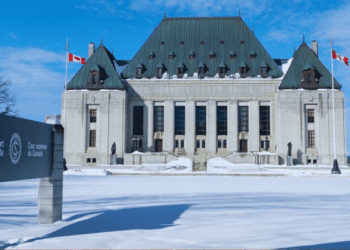By Aaron Wudrick, June 4, 2024
As the Trudeau government scrambles to pass its spring 2024 budget measures through Parliament before the summer recess, most of the media’s focus has centred on the budget’s headline measure, the increase in the capital gains inclusion rate. Unusually, Finance Minister Chrystia Freeland chose not to include that change in its main budget bill, saying she would instead soon introduce those measures in a separate bill.
Meanwhile, the remainder of the budget measures are contained in Bill C-69, an omnibus bill that has attracted little media attention. That is a shame, as it contains provisions that warrant closer scrutiny, particularly the proposed changes to the Food and Drug Act. These amendments grant the minister of health sweeping powers, exacerbating the Trudeau government’s longstanding habit of undermining proper procedural channels when it finds them to be inconvenient.
The new powers granted to the minister of health under Bill C-69 are considerable. For example, they allow the minister to unilaterally make decisions regarding drug approvals and food safety regulations, effectively pulling products off the shelves of stores without the typical procedural safeguards. This concentration of power in the hands of the minister circumvents much-needed scrutiny and risks politicizing health decisions. It is not hard to see how such authority could easily lead to arbitrary or politically motivated actions, further diminishing public trust in a health system battered by the COVID-19 pandemic.
Health Minister Mark Holland defends these new powers by arguing that they are necessary for protecting public health swiftly and effectively and suggests that only a “dishonest” minister would misuse such powers. He fails to mention that governance should not rely solely on the personal integrity of individual ministers but on robust, transparent processes that ensure accountability. It is concerning that Holland advocates bypassing established departmental procedures, which raises questions about the motivations behind these proposed changes.
A more appropriate regulatory approach would trust independent agencies, including Health Canada, to oversee the safety of health products. Establishing clear guidelines and procedures for evaluating and removing unsafe products would ensure consistency, fairness, and transparency in decision-making processes.
Unfortunately, this approach contrasts sharply with the Trudeau government’s preference for consolidating power and limiting oversight.
For instance, the Trudeau government has been criticized for its use of secret orders-in-council, which bypass public scrutiny and reduce transparency. These orders often contain sensitive decisions that the government simply prefers to keep out of the public eye.
The government has also allowed the federal access to information system to atrophy, with frequent delays and heavily redacted documents further undermining the principle of open government.
In 2017, the Trudeau government introduced changes that critics argued would limit the independence and effectiveness of the Parliamentary Budget Officer (PBO). These amendments allowed the government to control the PBO’s work plan and staffing, potentially reducing its ability to hold the government accountable. More recently, the government cut the budget of the Information Commissioner’s office, undermining the capacity of an already overwhelmed independent officer of Parliament to hold the government to account, with the commissioner herself noting that “this reduction in my budget will spell long delays for complainants who are seeking information from government institutions.”
Further examples of this troubling trend include the government’s proposal in the early days of the COVID-19 pandemic that sought to grant the government extraordinary powers to tax and spend unilaterally – without parliamentary approval – for almost two years. Later in the pandemic, the government faced significant criticism from Auditor General Karen Hogan for the lack of transparency and accountability regarding the allocation and spending of tens of billions in relief funds: “I am concerned about the lack of rigour on post-payment verifications and collection activities,” Hogan said in 2022.
Taken together, a clear pattern emerges of a government that regularly seeks to undermine transparency, limit oversight, and concentrate power within the executive branch, and Bill C-69 is just the latest attempt.
The government should back off and drop these proposed new unilateral ministerial powers. Strong regulatory oversight, coupled with transparency and accountability, won’t impair the government’s ability to regulate health products – all while safeguarding democratic principles and public trust.
Aaron Wudrick is the Director of the Domestic Policy Program at the Macdonald-Laurier Institute.







